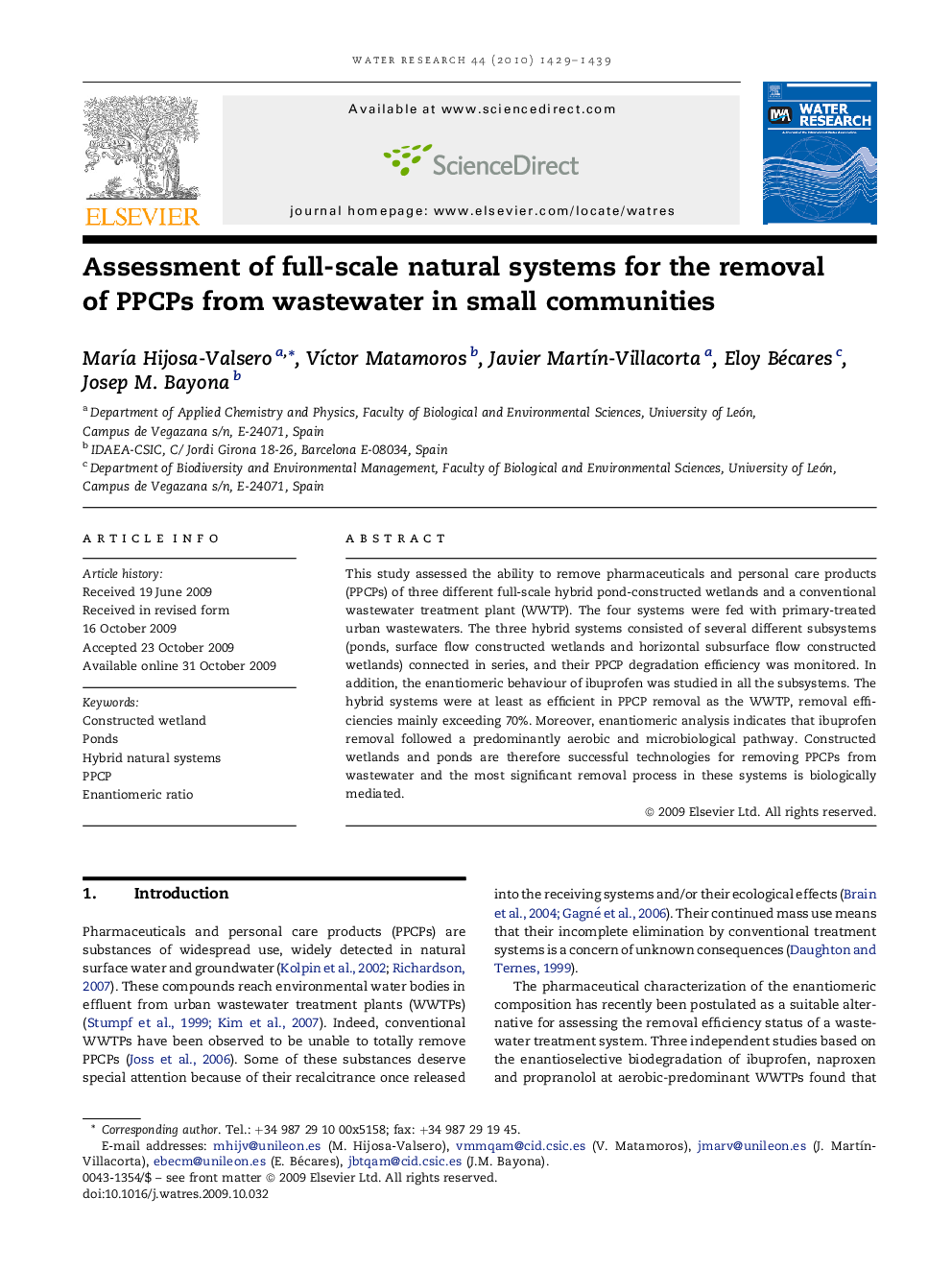| Article ID | Journal | Published Year | Pages | File Type |
|---|---|---|---|---|
| 4484280 | Water Research | 2010 | 11 Pages |
This study assessed the ability to remove pharmaceuticals and personal care products (PPCPs) of three different full-scale hybrid pond-constructed wetlands and a conventional wastewater treatment plant (WWTP). The four systems were fed with primary-treated urban wastewaters. The three hybrid systems consisted of several different subsystems (ponds, surface flow constructed wetlands and horizontal subsurface flow constructed wetlands) connected in series, and their PPCP degradation efficiency was monitored. In addition, the enantiomeric behaviour of ibuprofen was studied in all the subsystems. The hybrid systems were at least as efficient in PPCP removal as the WWTP, removal efficiencies mainly exceeding 70%. Moreover, enantiomeric analysis indicates that ibuprofen removal followed a predominantly aerobic and microbiological pathway. Constructed wetlands and ponds are therefore successful technologies for removing PPCPs from wastewater and the most significant removal process in these systems is biologically mediated.
